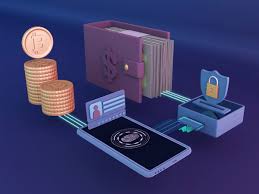The rise of blockchain technology has opened the doors to different networks, each offering unique capabilities and services. However, as the number of blockchains expanded, users faced significant difficulties transferring assets efficiently across networks. Enter multichain wallet —transformational tools designed to simplify cross-blockchain transactions, offering users a streamlined way to manage and move digital assets seamlessly.
If you’ve been venturing into blockchain ecosystems or trading cryptocurrencies, you’ve likely grappled with the challenges of navigating various wallets for different blockchains. This blog explores how multichain wallets are making the process less complex, more secure, and a lot more accessible.
The Need for Multichain Wallets
The blockchain and cryptocurrency ecosystem comprises multiple chains like Ethereum, Binance Smart Chain, Solana, and Polygon. Each of these networks operates on its own infrastructure and standards. Due to these differences, early blockchain adopters required a separate wallet for every chain, often leading to inconvenience and errors during transactions.
For example, imagine a scenario where a user wants to transfer Ethereum-based tokens to another blockchain like Solana. Without using a multichain wallet, they would need to convert their assets through an exchange or bridge service and then manually transfer them into another dedicated wallet that supports Solana. This multi-step process takes considerable time, introduces risks, and often incurs high fees.
Multichain wallets were developed to bridge this gap, ensuring that users can transition between blockchains efficiently within a single interface, significantly reducing friction.
What Are Multichain Wallets?
Multichain wallets are advanced cryptocurrency wallets designed to support multiple blockchains under one roof. Unlike traditional wallets limited to specific chains, they allow users to interact with various blockchain networks simultaneously.
These wallets facilitate several essential functions, including:
• Managing assets from different blockchains in one place.
• Enabling seamless transfers between blockchains using built-in cross-chain transaction functions.
• Providing a unified user interface for cryptocurrency and NFT management.
Some prominent multichain wallets like MetaMask, Trust Wallet, and Coin98 are already leading the charge in addressing the complex web of blockchain diversity.
Key Benefits of Multichain Wallets
1. Simplified User Experience
One of the most notable advantages of multichain wallets is their ability to streamline the user experience. Instead of managing multiple addresses across various wallets, users can handle all their assets in one application. This simplicity reduces the likelihood of human error, particularly for beginners.
2. Cross-Blockchain Interoperability
Cross-chain interoperability is the backbone of multichain wallets. They leverage advanced technology to enable users to transfer assets between different blockchains without needing to manually convert them elsewhere. This feature is particularly helpful for individuals engaging in decentralized finance (DeFi) activities that often require bridging between chains.
3. Cost Efficiency
By cutting out the intermediaries often required to transfer funds between networks, multichain wallets help users save on transaction fees. Users avoid redundant steps like converting assets on exchanges, further optimizing cost and time.
4. Broader Accessibility
Multichain wallets empower users to explore blockchain ecosystems freely. For example, someone holding Ethereum on one chain can seamlessly explore Solana-based applications while still having control of their Ethereum assets, all without switching wallets or platforms.
The Role of Tech Innovation in Multichain Wallets
Behind the seamless operations of multichain wallets lies groundbreaking innovation such as smart contracts and interoperability protocols. These wallets utilize atomic swaps or specialized relays that coordinate asset transfers across isolated networks. Open standards like ERC-20 or BEP-20 and advanced bridging technologies continue to enhance their functionality.
Additionally, these wallets often integrate decentralized exchanges (DEXs), allowing users to swap tokens directly within the wallet interface. For instance, users might swap Ethereum-based USDT for Polygon-based USDT without navigating external platforms.


